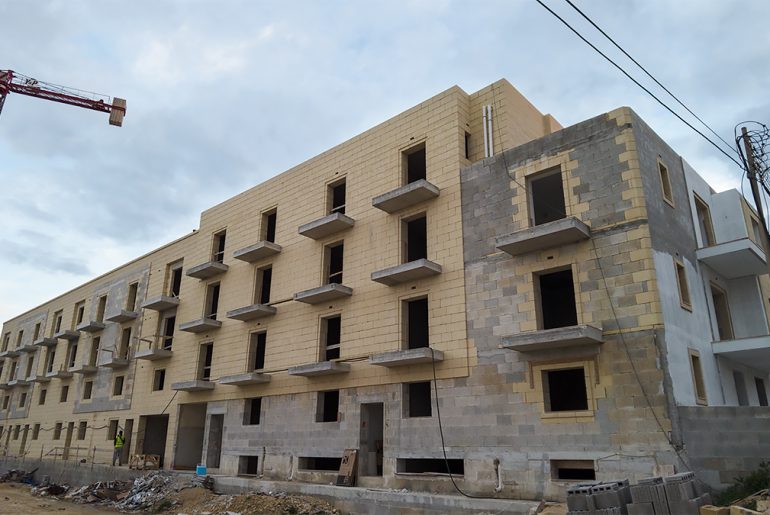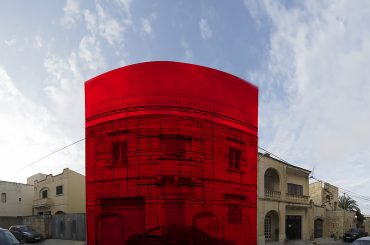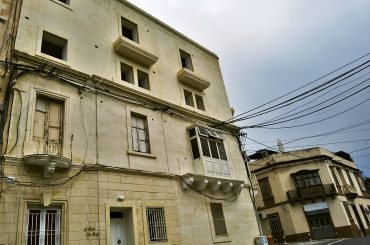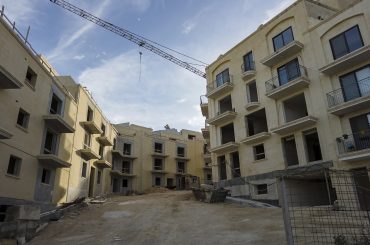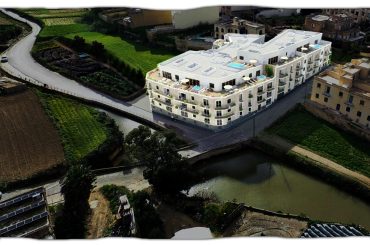A request by two NGOs for the recusal of an architect who sits on the planning review tribunal, which hears appeals against planning approvals, drew attention to the architect’s parallel work in preparing development applications for private clients. It also emphasis just how far the tribunal falls short of constitutional standards.
The two NGOs, Din L-Art Helwa and Moviment Graffitti, made the request during proceedings against approval of two blocks within a cluster of flats amounting to almost 150 flats. The multi-block development belongs to property developer Joseph Portelli and two other business associates in Gozo. The development is situated 350 metres from the cliff edge near Ta Cenc, until now a quiet residential neighbourhood.
The appeals against the planning permits are ongoing but construction has been completed in two of the blocks. The tribunal rejected a request to suspend the commencement of works during the hearing of the appeal.
At one point, the architect acting on behalf of the NGOs asked one of the tribunal’s members, the architect Robert Sarsero, to recuse himself on the basis that he had been the project architect of a separate planning application in which one of the NGOs’ had appealed against.
In rejecting the request for recusal, the tribunal maintained that an architect who prepares a project proposal cannot be conflated with the applicant, but only engaged to “perform a professional job.”
“In the same way,” the tribunal maintained, “a lawyer is not the criminal, the plaintiff, or the defendant in cases of his clients.”
The tribunal added that the architect is not related to the applicant, or to the appellants (Din L-Art Helwa), and as such there was no objective lack of impartiality.

The point on not being related to the applicant was made in reference to the relevant provisions on recusal in procedural law that governs civil courts. Yet that law, which narrowly deals with blood relations and a member of the judiciary having previously decided on the case in another court, has been mush developed in caselaw or jurisprudence – and the reasons that call for recusal are now much wider than the narrow provisions of the law.
Yet the tribunal had a point: granting a request for recusal simply because the person sitting in judgement had a client whose permit is being challenged by one of the appellants in a separate case is a stretch too far even in the wider evolution of the law in caselaw.
Moreover, the application for recusal made by the architect representing the NGOs was too brief and too vague. It would have been useful, for example, to consider what lawyers presiding over the small claims tribunal do in certain scenarios. Would they recuse themselves from a case if the plaintiff in that case was also mounting a separate legal challenge against one of their clients?
However, irrespective of rigorousness of the application for recusal and the reasons of the tribunal for refusal of the request, the whole matter reveals something rather unsettling about the tribunal: that its members are able to continue serving private clients in front of the Planning Authority at the same time that they serve on the tribunal that reviews Planning Authority decisions. Legal sources consulted by this website agreed that this is problematic.
The newspaper Malta Today has reported that this did not use to be the case prior to the change of government in 2013, which is when the rules were loosened to allow architects who sit on the tribunal to be able to serve private clients in applications for development permits.
This also shows that the tribunal’s adherence to constitutional standards, which has always been tenuous, has slipped even further in the past decade or so.
This website has published a detailed analysis into the law that regulates the tribunal and the patterns of decisions by the tribunal, which fall way short of constitutional standards on fair hearing and effective remedy.
Donate to Planning Emergency
The investigative articles into perverse planning or damaging development published on this website take time, resources, and effort to put together. These articles make impact by the robustness of the research and the professionalism of the reportage. Your support is needed to sustain this kind of impactful reportage. This website's donation setup itself is uniquely transparent, with targeted amounts that allow tracking of donations in real time. Contribute as little as €5 to sustain active planning journalism that makes an impact.

